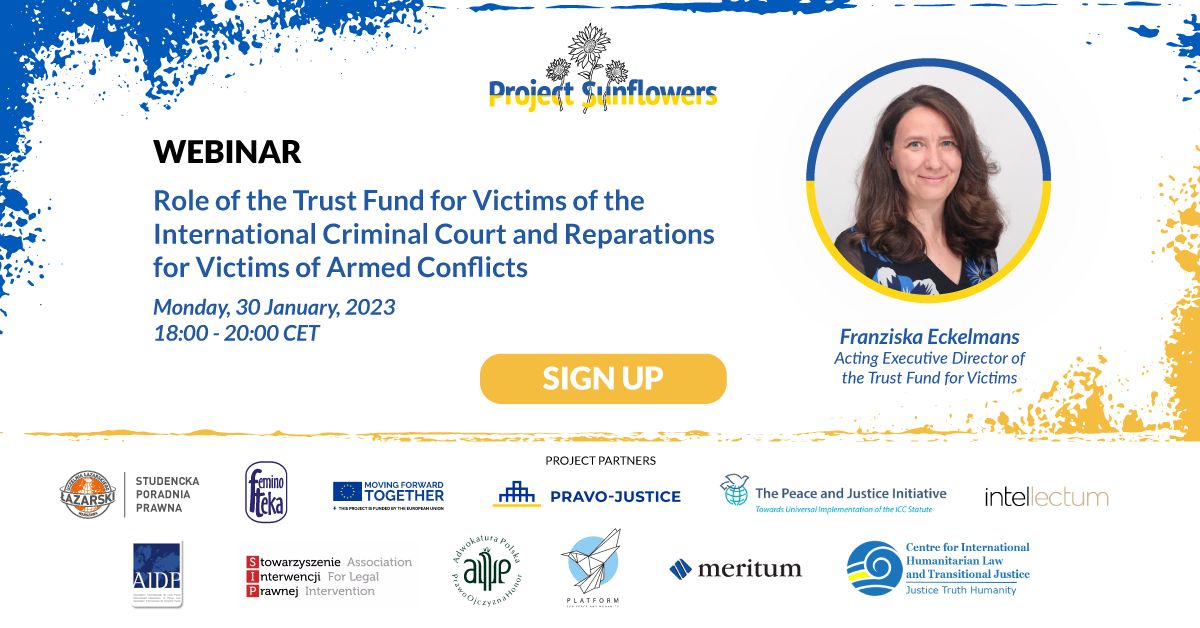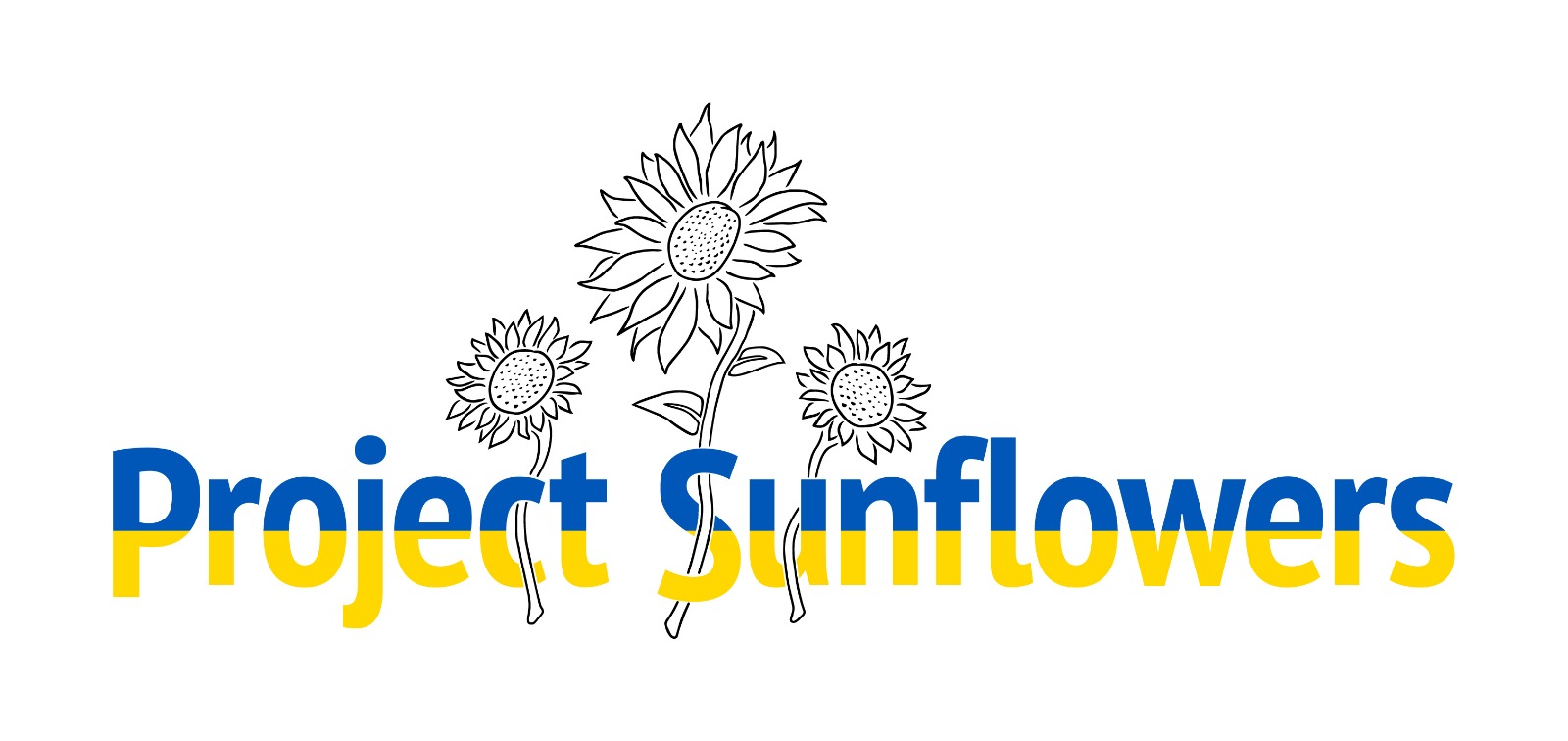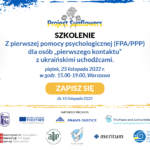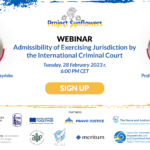Role of the Trust Fund for Victims of the International Criminal Court and Reparations for Victims of Armed Conflicts

On 30 January, 2023, the Project Sunflowers organized the 30 January, 2023 on Role of the Trust Fund for Victims of the International Criminal Court and Reparations for Victims of Armed Conflicts.
Introduction was given by Marina Lostal, Ph.D., experienced reparation for victims of armed conflicts’ expert. Key note speech was delivered by Franziska Eckelmans, acting Executive Director of the Trust Fund for Victims (TFV). Legal officers of the ICC: Adeline Bedoucha, Cheihk Fall and Tars van Litsenbourg shared their experiences of working with victims of armed conflicts. Franziska Eckelmans began her presentation by defining the term ‘reparations’ and then focused on the role of the TFV, its organisation, mandates and main activities. Adeline Bedoucha provided the context for the reparation case of Al Mahdi, who was found guilty as a co-perpetrator of the war crime consisting in intentionally directing attacks against religious and historic buildings in Timbuktu, Mali, in June and July 2012. Ms Bedoucha then focused on the practical aspects of working with victims, stressing the importance of contacting victims as closely as possible to the time at which reparations will be ordered or delivered, and the importance of not raising expectations about future reparations. She also shared the methodology used in communicating with victims. The floor was then taken by Cheihk Fall, who presented the context of the Lubanga case. Mr. Lubanga was found guilty of the war crime of enlisting and conscripting children under the age of 15 years and using them to participate actively in hostilities (child soldiers). The speaker outlined the role of victims’ representatives, who should maintain regular contact with victims and remain flexible in dealing with victims’ reported remedies. He also drew attention to choosing the right moment to contact victims, but above all he addressed the message to try to see the person not only as a victim of an atrocity, but above all to see the person as a human being. Then, Tars van Listenbourgh provided the context for the reparation case of Katanga, who was found guilty, as an accessory, of one count of crime against humanity: murder; and four counts of war crimes: murder, attacking a civilian population, destruction of property and pillaging, committed on 24 February 2003 during the attack on the village of Bogoro, in the Ituri district of the Democratic Republic of the Kongo. Mr van Litsenbourgh, based on his experience in dealing with victims in the Katanga case, highlighted the flexibility that the legal representative of victims, but also anyone who comes into contact with victims in the reparation process, should have. Flexibility allows for the different needs of victims to be taken into account, and these can change over time. The speaker also spoke about the trust that victims of armed conflicts have in their legal representatives and the authority involved in the reparation process. Gaining trust, in turn, is possible through ongoing contact with victims.
The webinar was conducted in English with simultaneous translation into Polish and Ukrainian. Please, watch the abstract of the webinar.


